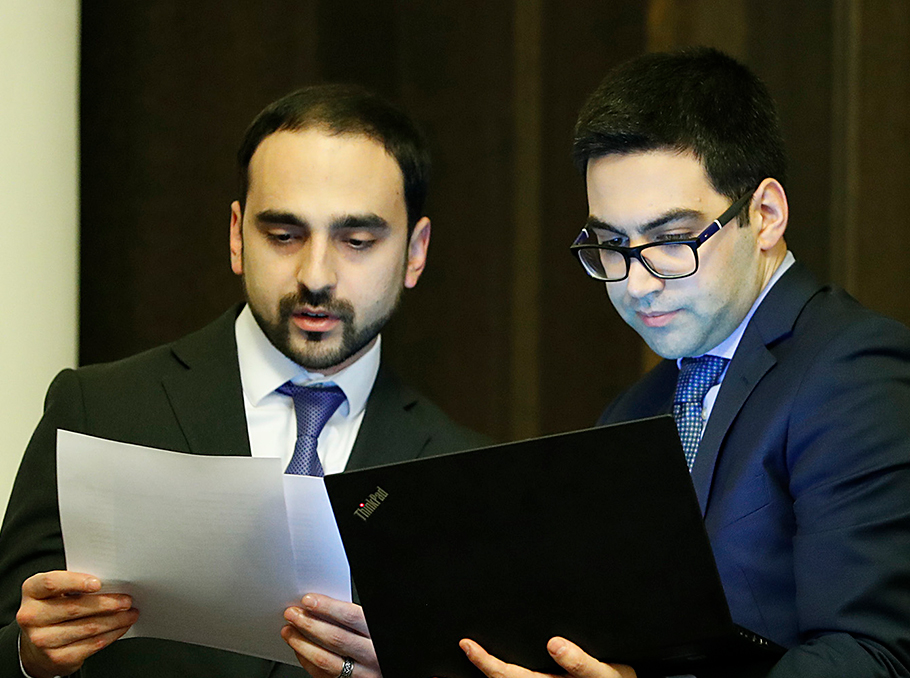The Government of Armenia has issued a statement explaining in 7 points what is and is not permitted during the state of emergency, which will be valid in the country from March 16 to April 14, 2020.
1. Crossing of the Armenian border
- Armenian citizens cannot cross the Armenian border by land, with exception for people involved in operation of cargo traffic, for instance, drivers.
- Armenian citizens and their family members (even if they do not have Armenian citizenship), as well as people registered for residence and residing in Armenia are permitted to enter into Armenia.
- Foreign citizens are not permitted to enter into Armenia, if they hold citizenship in the countries which have an ongoing coronavirus epidemic (the list of these countries will be put together by the commandant’s office) or if they visited these countries within the last 14 days.
- Regardless of circumstances, members of diplomatic service (ambassadors, employees of consulates and international organizations) and their family members are allowed to enter into Armenia.
- At the same time, in certain cases the commandant can permit entry into Armenia to people not mentioned above, in accordance with the conditions of the state of emergency.
2. Preventive measures
- Crossing of the Armenian border will be followed by a medical examination.
- People showing symptoms of coronavirus can be hospitalized and isolated (self-isolated), and other restrictive measures can be taken toward them.
- If the given person refuses to participate in such measures, they can be temporarily isolated in the places selected by the commandant for medical examination and treatment with the purpose of preventing the spread of the virus.
- If it becomes clear that the given person has arrived in Armenia from a country with an ongoing coronavirus epidemic, they will be transferred to a place of quarantine or ordered to self-isolate in their home or other place of their choice and to exclude direct contact with other people.
3. Restrictions to movement
Although the state of emergency has been declared nationwide, restrictions will be implemented only in communities and areas selected by the commandant. In these areas, the following changes will take place:
- entry and exit from the area will be permitted under a different regime, which is going to be maintained by the inspection services of the police, Ministry of Health, Ministry of Emergency Situations and Ministry of Labor, Health and Labor Inspectorate, marz and community administrations;
- entry and exit will not be restricted in cases related to delivery of essential supplies, food, medicine and fuel, as well as elimination of circumstances that required declaration of the state of emergency, and resolution of other urgent issues;
- members of the community might be isolated (self-isolated), and arrangements regarding movement might be introduced (the hours during which movement outside is allowed, the number of people allowed to gather, etc.).
People with suspected or confirmed infection with the coronavirus will be transferred to quarantined areas.
4. Participation in events
Gatherings and walkouts are prohibited nationwide.
Additionally, the commandant can select areas where a temporary ban will be placed on public gatherings such as sport, cultural, educational, entertainment events, as well as gatherings related to birthdays, weddings (and engagements), funerals, etc. The listed events will be prohibited if they feature a group of over 20 people.
5. Educational process
The educational process will be halted in all state, private, and community institutions of public education (including kindergartens), primary and secondary vocational education institutions, and higher education institutions. The prohibition does not concern distance (online) learning courses.
6. Other restrictions
Visits and passing of packages to penitentiaries, military units, psychiatric institutions and institutions providing care to the elderly and children are prohibited.
7. Publications in the media and online platforms
If individuals and media outlets wish to publish information about previously confirmed and new coronavirus cases, the condition of the patients, sources of infections and the number of isolated individuals online, including social media platforms, they should use solely the official data provided by the commandant’s office, refer to it, and keep their statements as close to the original wording of the statements of the commandant’s office.
The publications by individuals and media cannot contradict official information. The same concerns publications that cause panic or pose a threat of causing panic.
Such publications must be deleted immediately by the authors.

















